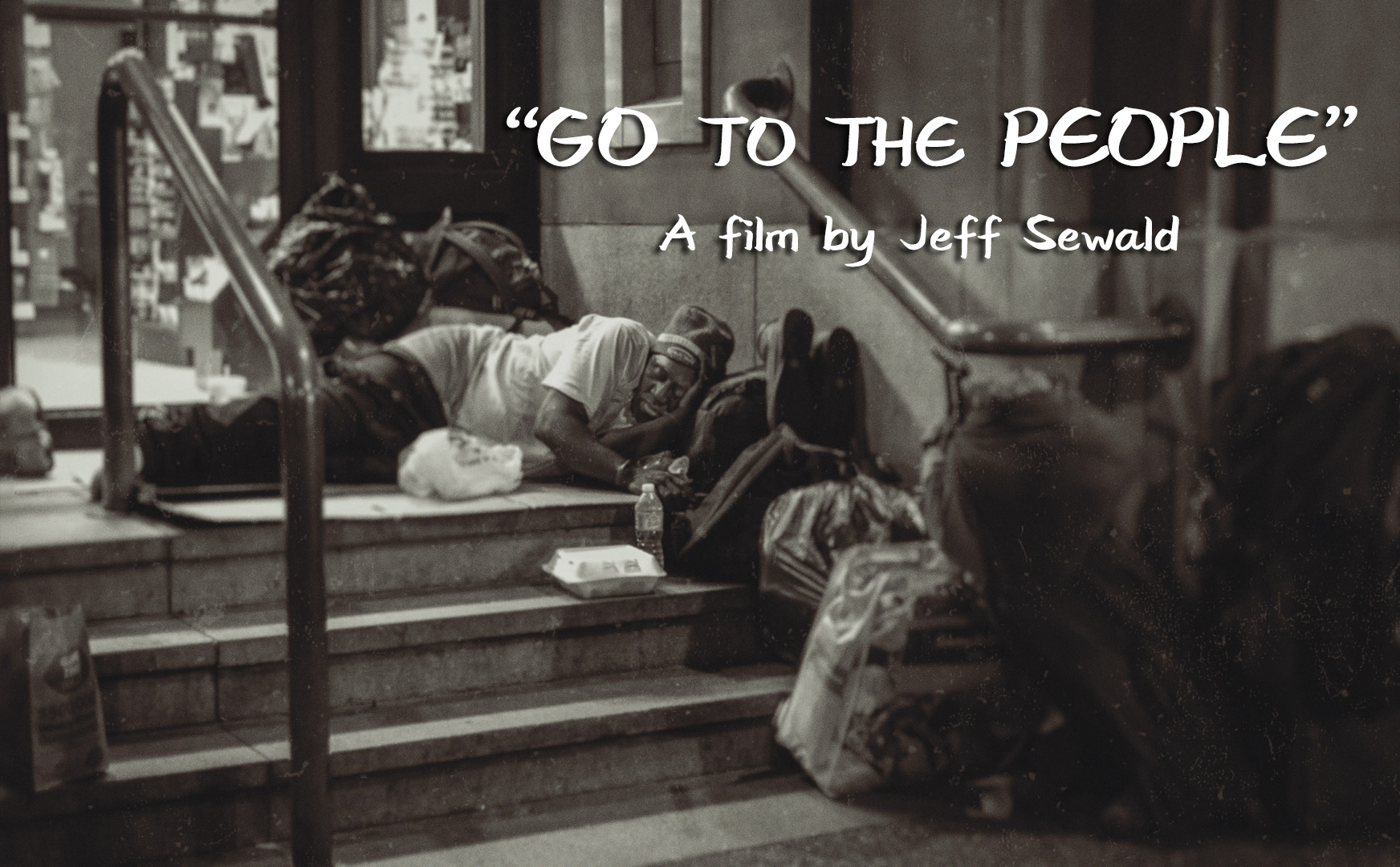Jeff Sewald.
Jeff Sewald is an award-winning writer and filmmaker whose specialty is defining the cultural significance of people, places, things and events. He began his career as a print journalist writing feature articles. Over time, his reputation as a conversational yet probing interviewer expanded and led to 25 years of success as a producer, writer and director of documentary films.
Mr. Sewald has experience in a variety of media and with an array of topics, from music to politics; business to sports. His work has brought him into contact with a host of luminaries including, among others, American historian David McCullough, film director Sidney Lumet, football legend Mike Ditka, famed attorney Alan Dershowitz, author Peter Matthiessen, and rock music icon Lou Reed.


“GO TO THE PEOPLE”
Produced, written and directed by Jeff Sewald.


Inspired by childhood memories of accompanying his father, a family physician, on house calls, and his mother, a nurse, on home-care visits, Dr. Jim Withers began providing medical care to Pittsburgh’s unsheltered homeless population in 1992.
Initially dressing as a homeless person (and assisted by a street-savvy formerly homeless man), Jim began making nighttime street rounds in the alleys and under the bridges of the city. Inspired by this bold outreach, other clinical volunteers joined in, and Operation Safety Net was born. Today, the program is recognized as one of the nation’s first full-time street medicine concerns, and it continues to set the standard for this unique form of health care.
Over time, Operation Safety Net inspired a movement that has since spread throughout the nation and the world. This film communicates Dr. Withers’ holistic health-care vision while showing firsthand the work of Operation Safety Net, and describing the effects of the movement that it has promulgated.
PORTFOLIO.
Explore the various facets of Mr. Sewald’s portolfio.

TV & FILM
In September 1995, Mr. Sewald began writing and co-producing documentaries …
WRITING
Before relocating from Pittsburgh to New York, Mr. Sewald wrote many features and reviews for regional publications…

BACKSTAGE PASS
Between 1984 and 1991, Jeff Sewald earned a portion of his living writing interview profiles and reviews of major musical artists…
CREATE TOGETHER